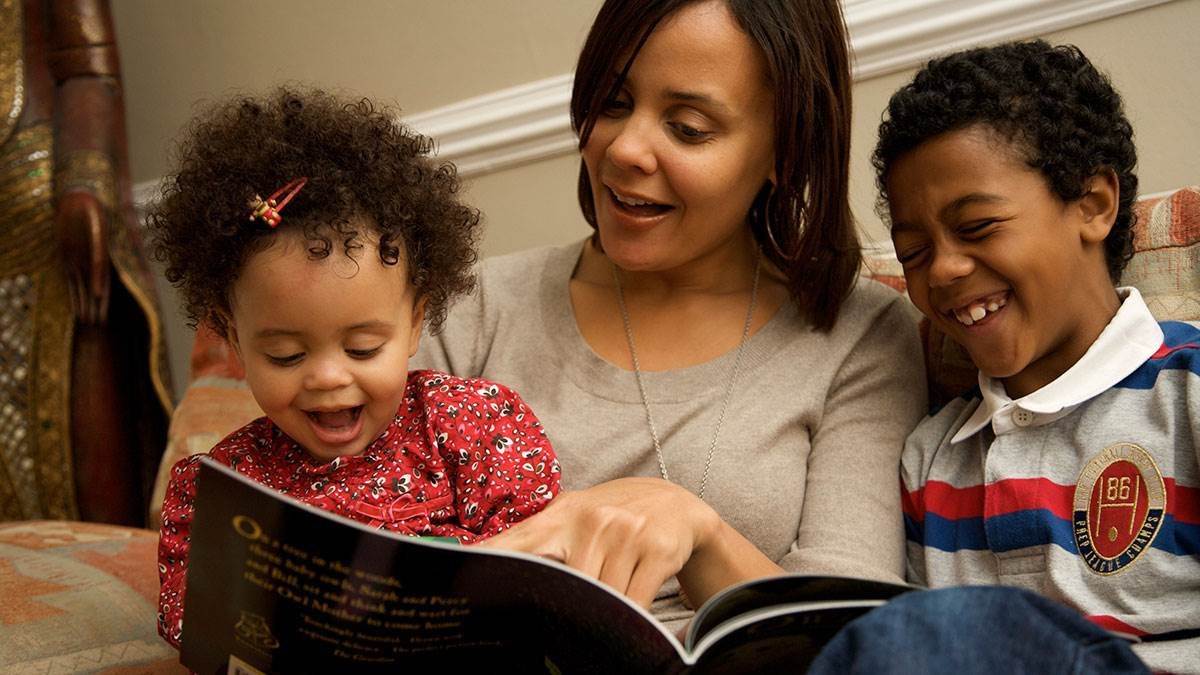
Family Engagement

WHAT THE RESEARCH
TELLS US
Time and time again, the research has shown that students raised in homes that promote family literacy grow up to be better readers and do better in school than students who lack that support at home. The U.S. Department of Education emphasizes the importance of early literacy not only as a stepping stone for a child’s reading ability but also as a trajectory for future academic and career success.
To this extent, Literacy Trust recognizes the need to address the literacy crisis in a three pronged approach: refining ELA/literacy curriculum, expanding intervention for high-need students, and engaging families so that students continue to foster a love of reading both inside and outside of school.
Source

Our family workshops take place in school communities with a goal of teaching parents the importance of cultivating easy, enjoyable literacy practices at home. With the support of our team, parents are able to walk away with a deeper understanding of ways to build lasting reading habits, foster a joy for reading, and support reading challenges when they arise.
“Sixty-one percent of low-income families have no books at all in their homes for their children. While low-income children have, on average, four children’s books in their homes, a team of researchers concluded that nearly two-thirds of the low-income families they studied owned no books for their children.” (US Dept. of Education, 1996)
Part of the literacy crisis, which in particular affects low-income students of color, is due to lack of book access at home. Without books to practice literacy skills and foster a love of reading, students have a difficult time becoming fluent and confident readers. When Literacy Trust works with partner schools to facilitate literacy learning for families, we provide specially curated book sets to jump start home libraries. In partnership with numerous well-regarded publishers, we ensure students bring home high-interest and culturally relevant texts that have a range of complexity that supports a variety of reading methods.
Our goal is to expand family strategies for supporting readers at home, such as adjusting the environment to be more reader-friendly, providing access to high-interest & appropriate texts, and using evidence-based practices when reading with their children. We aim to help families build knowledge on supporting early readers' phonemic awareness, decoding, fluency, and language skills.
Get in Touch
Would you like to bring a family engagement element to your school or organization’s literacy approach? Reach out to us to set up a call with one of our team members.



